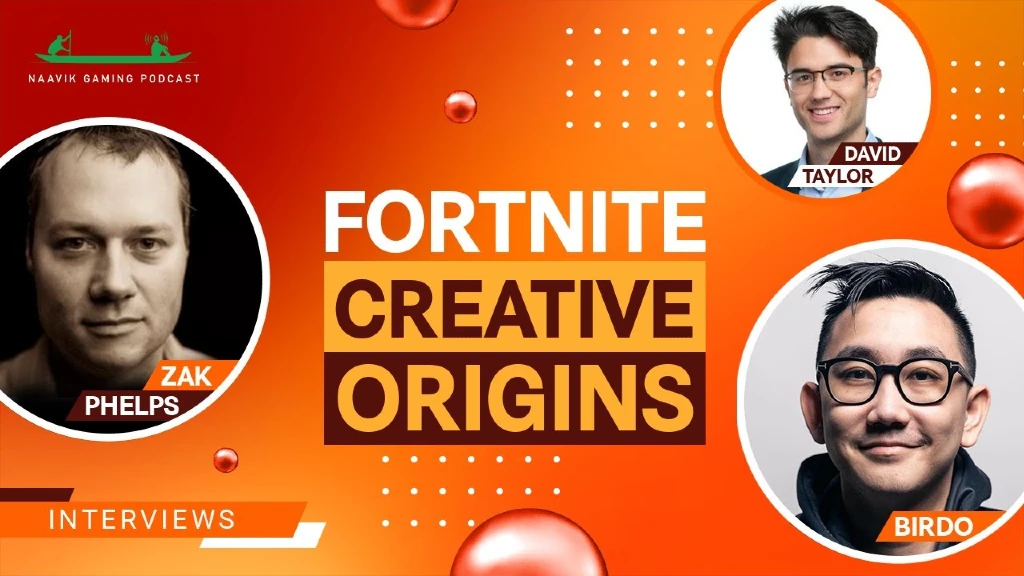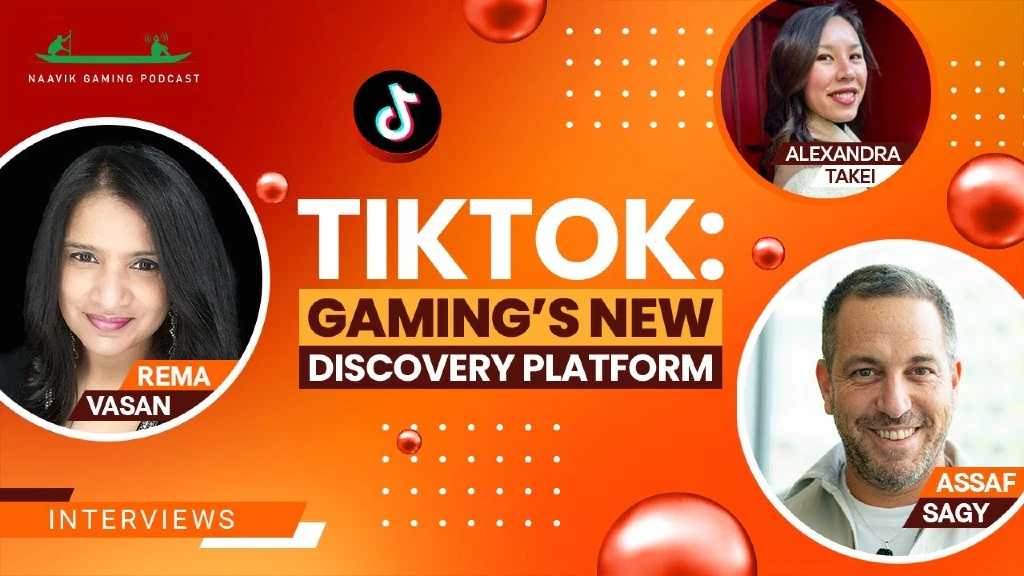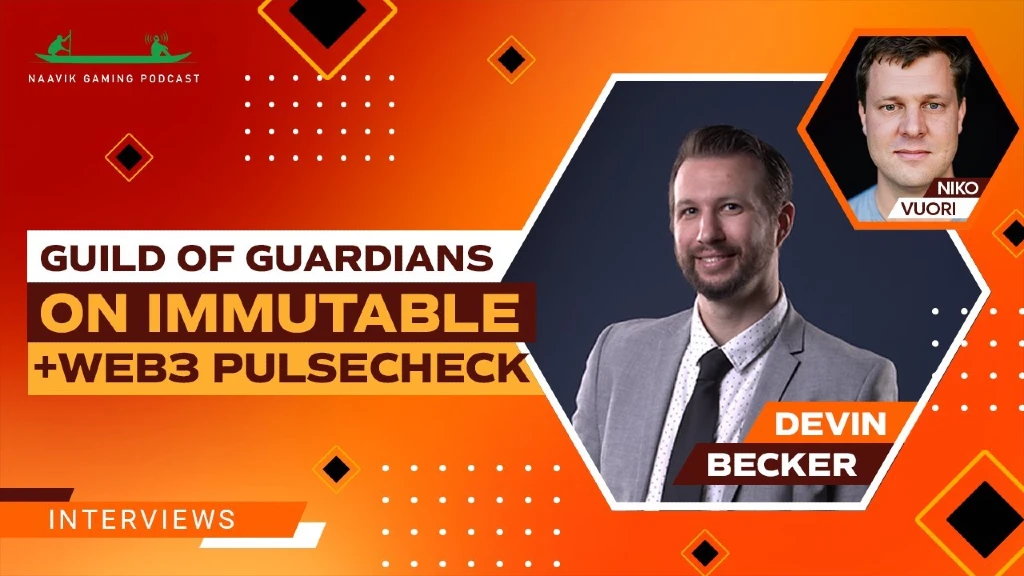I had the pleasure of interviewing Javier Ferreira, co-CEO of Scopely. Scopely is a leading mobile games developer and publisher behind hits like Star Trek Fleet Command, MARVEL Strike Force, and Scrabble GO. We discuss Javier’s vision for Scopely, the key components to growth, how Scopely thinks about M&A and IP, Javier’s thoughts on leadership and culture, and much more. Javier’s answers are packed with great insights, so please enjoy our conversation.
On Scopely’s Vision and Strategy
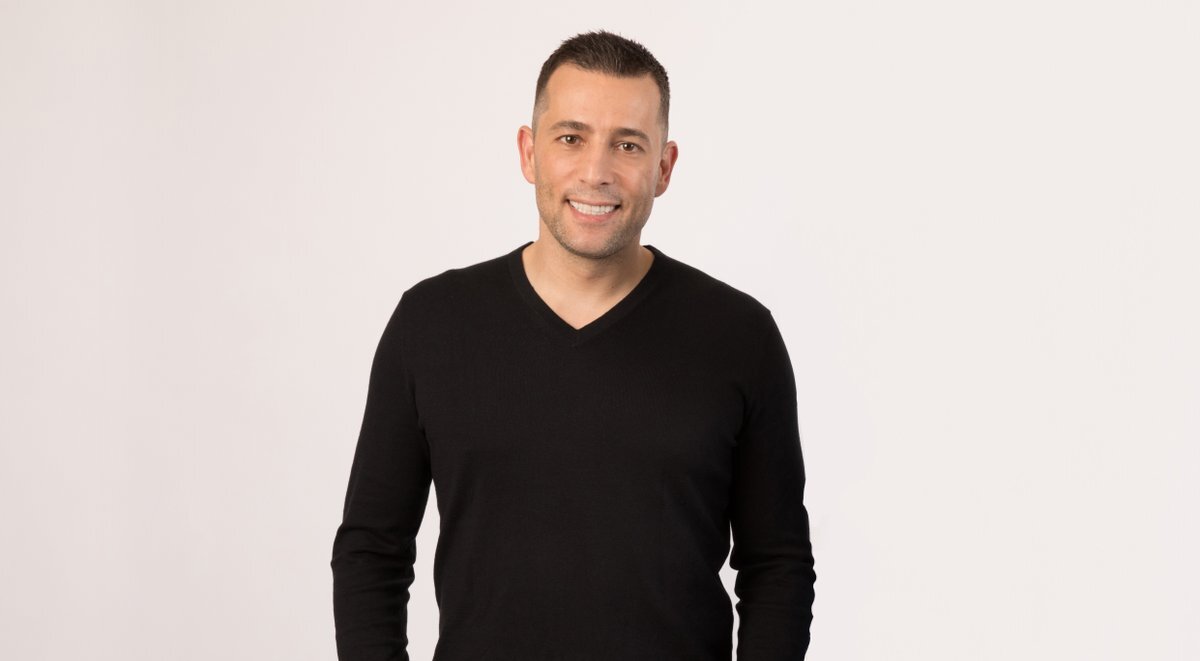
Aaron Bush: Let’s begin with a two-part question. First, what is Scopely's long-term vision? And second, at a high level what are the key components to bringing that vision to life?
Javier Ferreira: Our long-term vision is to build the definitive free-to-play games company. That’s the goal, and that's what drives and motivates us on a daily basis. We have a really robust portfolio of live games, and we’re focused on improving those experiences, serving our players every day, and creating very loyal and long-term player bases that are engaging with our games for years. To deliver on this vision, I think there are a number of growth drivers to our strategy. First is growing lifetime value (‘LTV’) and the second is creating LTV, which relates to our studio ecosystem, which has grown significantly over the last few years. All of our studio teams are focused on building great new experiences and games that we hope to launch over the next few months and years. The third growth driver you can call acquiring LTV, and that is working with great teams that are out there, either with games that are live, or working on new games, that, by partnering with us, can do even bigger things, serve the players better, and benefit from Scopely’s entire infrastructure and technology platform, Playgami.
I think we'll deliver on those three drivers of growth and continue to build a really amazing company that's going to have a huge impact in the industry. To answer your second question, there are a number of components that we're going to build to deliver on that.
First, we're very focused on building a technology platform that empowers our game teams to do all of those things that I mentioned before, whether it's creating new games or operating existing games or adding value to the games that we acquire. One goal of our Playgami technology platform is to allow game teams to really focus on building game experiences in a way that technology isn't an impediment but rather really easy to work with. That ability is due to the platform’s unique game engines, game services, and repeatable features that can be used across games. That whole setup empowers our studio ecosystem to really focus on the player rather than focusing on technology.
Another capability of our technology platform is to serve the player on a one-to-one basis. Ultimately, it's about understanding how a particular player likes to engage with the game — what are the features that they have a strong affinity towards? where are they in the player lifecycle? — and really be able to evolve and customize the game and communicate in a way that's very dynamic, interactive, and highly personalized. The outcome we're trying to achieve is very long term retention and very high degrees of loyalty.
The second component is our studio ecosystem. There, what we're trying to build are teams that share our creative culture and a passion for the games that they're trying to deliver. We give them a lot of autonomy and ownership, especially in terms of how they want to operate and function in the games that they want to make. Our goal, as a company, is to empower them and to give them value. By that, I mean giving them tools, capabilities, intelligence, and data that allow them to be the best versions of themselves and to be more powerful within the Scopely ecosystem than they would be otherwise. We have a wide array of studios working on all kinds of games.
The third component that's key for us is what we call our “operating system” (OS). We're trying to build a company with a highly distributed and decentralized decision-making process. We try to empower our leaders and our people to own their roadmaps and how they want to operate, and create a system that delivers great decision-making in a decentralized manner. For me, the operating system is the set of processes, culture, and principles that govern how we think and how we operate as a company.
A key element of that operating system is what we call our "learning machine." I believe that, as a company, as long as we're learning faster than everybody else, and as long as we're growing faster than everybody else, the future's always going to be bright. Building an OS that's an incredibly fast-learning machine and capable of driving learnings across the entire games portfolio is a key differentiator that we're really focused on.
Finally, we focus on talent. We’re building an ecosystem where the best people want to work, where we can achieve incredibly high levels of talent density, and where people can have the best experience of their professional lives. If all of those things come together, then we're on our way to doing something meaningful and important in this space.
There's a ton to unpack in all that, so let’s take it one component at a time and dig deeper. But to set the foundation a bit more, as a developer and publisher, what is Scopely's strategy for determining the kinds of games you want to publish in the first place? How do you broadly think about maximizing the odds of those games succeeding?
When thinking about the games that we want to build, we focus on the intersection of three fundamental ideas. It's when these three ideas come together that we have conviction around a game. First, we look at the market; we look at what's going on in terms of players, platforms, and genres. We want to build really large, successful games that can deliver massive lifetime revenue, so we want to have conviction around the market potential of anything that we do.
The second idea is there needs to be either a product leader or a team of leaders that have a creative passion for making that game. Ultimately, making games is not just software development. It's much more than that. It's a very creative process that’s difficult, and it has a lot of highs but also a number of lows. We see this as a necessary condition, and there needs to be a group of people who want to go on that journey and are incredibly passionate about making that experience.
The third idea is the team. We don't think in terms of developer or publisher. We think in terms of game teams. In free-to-play games, a game team is a collection of people that go from developers, engineers, art designers, UX, UI, and product, but also growth, user acquisition, and a number of different functions that ultimately live together when you launch a game. What we need to have is conviction that we have the right comprehensive team to go after that opportunity. Although you might have a couple of creative individuals that want to build a game, we've learned that the biggest predictor of success is the quality of the overall team. So we spend a lot of time thinking about and deliberately designing what the team needs to look like for going after an RPG versus going after a strategy game versus going after a social PvP game.
When those three things come together… when we have 1) conviction that there's a huge market for what we're trying to do, 2) a creative leader (or leaders) who really wants to go after that kind of opportunity, and 3) a team that is fully capable and aligned around the vision, then that's when we start to go after a game.
In terms of how you go from that initial decision to delivering a hit, there are a number of things that are core to how we think about it. First, we try to remove constraints from the team. It goes back to what we said around empowering the game team to really own their roadmap and their decision-making. Some game teams, by the way, want to go small, and some game teams want to go big. Mostly, our game teams need a lot of technology to try to build the games that they want to do, and we can remove a lot of constraints so that teams can focus on building a great experience for players.
The second thing is a very long-term and patient perspective on game development. Every single game team has a roadmap, and that roadmap is a linear proposal: "Hey, we'll go from here to here; it'll take us three months." However, the reality is that the journey is never linear. The journey is full of unexpected encounters - things that are delightful but you didn't expect them to be, sometimes with issues that you didn't anticipate, and sometimes plans don’t work out as you expected. We're trying to create an environment where we're very patient with how games get made. That, by the way, is reflective on how we think about our partnerships with studios. If you're on a schedule, it's going to be difficult for you to find the magic. So we take a step back and we have grown very patient about what it takes to find the magic.
The third component is being data-driven. I don't believe in decisions through data. I believe, of course, in a lot of improvements to your design through data. I think the magic needs to come from a creative process. But once you have a very powerful core idea and a core loop, and you're testing that against data, we want to make sure that the data is telling us that we have something that players can care about, not for one week, not for a month, not for six months, but they can really care about that product for years, both in terms of how they want to spend their time and how they want to spend their money. Being disciplined around when data is telling you that the game is ready, and, by the way, that's no different than when players are telling you that the game is ready, is an important part of our OS.
I think you still see a lot of products that, in my opinion, are great products but get launched too early and therefore fail. We really try to avoid that and be very data-informed around the decision to launch a game. If you bring all of those three things together, then you have a really high probability of success, and, of course, we want that success to happen sooner, for sure, but that's not the point. When you're building businesses that can last for 10, 15, 20 years, relatively short periods of time aren’t what matters. What matters is LTV, specifically how deep that LTV is and how durable it is. That's what we've tried to solve for in how we organize our development process.
On Scopely’s Studio Ecosystem and Technology Platform

Let's dig into your studio ecosystem. Scopely is known for leaning pretty heavily on co-development for a lot of different projects. Can you talk more about how that works and what a great co-developer to Scopely looks like?
I would frame it a little bit differently and say that we lean heavily on talent. Also, the reality is that we'll never own all the great talent that exists out there. Just because they don't work at Scopely doesn’t mean that we're not incredibly impressed by their capabilities, and we really want to work with some of those teams. In many cases, those people do end up working at our company, and we have great internal studios working on Star Trek Fleet Command, MARVEL Strike Force, Scrabble GO, and other projects. Our fully internal Scopely studios are doing great work, but there's still going to be great talent out there that we also want to partner with.
A lot of the things that we talked about on the publishing and technology side of things get much better with scale. Our own OS gets much better with scale, and our learning machine gets much better with scale. That said, it's not clear that creativity gets much better with scale. We're a talent-oriented development culture. What we're trying to do is work with the best people to go after particular outcomes. As you know, a great team for RPGs isn't going to be a great team for match-three, and, likewise, a great game team for making match-three games isn't necessarily going to be a great team for strategy games. We're very deliberate and thoughtful about how we think about talent.
Because of that perspective, we don't need to own all of the talent that works on our games, and we don't really think in terms of internal vs external. Sometimes we’ll have people from one company, Scopely, making up that team; sometimes it's two companies and sometimes it's three companies. We organized our operating system, technology platform, and our processes so that we can remain flexible. In some ways, it should be transparent. The goal is for those so-called corporate boundaries to not be visible in how the game team operates. I don't really care whether somebody works at Scopely or one of our partner studios, as it relates to the game development process. The goal is they should work as a highly integrated and functional game team that delivers the kind of experiences that we want for our players. That's how we aspire to operate with our partners. We try to remove a lot of the constraints that they've had in their business, whether it's access to capital, or the need to launch a game on a particular date, or access to talent.
For example, we don't have milestone-driven funding. Our goal is to hit a particular quality. As I said before, although every team plans for when we’re going to hit that quality, the reality is that it’s not a linear journey, so we don't want teams to have their financials linked to milestone-driven development. We're ultimately building partnerships that are organized, even at the deal level, around delivering great games and delivering successful games to market.
More broadly — since you manage a growing ecosystem of studios + several different partner relationships — how do you think about centralization versus decentralization? What makes sense to be centralized in terms of tech, decision making, etc.? And when does it make sense to decentralize work, especially to the different external partners that Scopely works with?
It goes back to what gets better with scale and what doesn't. For example, I don't think that creative development and creative decision-making necessarily get better through scale. In the case of making games and making creative decisions, you've got to stay small, you've got to stay nimble, and you've got to really drive that decision-making to the people that have the vision and the passion to make the game.
As it relates to game making, we think of game teams as mini-companies, where we try to push as much of the decision-making and the ownership toward those game teams. While we lead with the concept of operating as one Scopely, building a cooperating system that drives a certain quality of decision-making that is systematic across the company, that isn't in conflict with having game teams and studios that also have their own culture, their own way of thinking about things, and different processes. We empower those game teams to operate like that because we think there's a part of our business that really benefits from that decentralized, self-driven kind of approach.
In terms of what makes sense to be centralized, it’s our technology, our Playgami platform. Our platform gets smarter and develops better capabilities with scale. Why? Because it's learning all the time through its deployment and usage on different games, whether those are live games, games in development, or games in prototyping phases. Game teams are contributing capabilities to this platform, whether it's on the game development side or whether it's on the CRM side of things. So the Playgami platform gets better with scale, every team benefits from it, and it’s one of our biggest drivers of centralized value.
A lot of the teams at Scopely are focused on creating value for game teams. I think that's an important distinction. It's not about creating processes; it's about creating value for those game teams, so that those game teams can do what they couldn’t do anywhere else. That's a big competitive advantage. Those are things like: How do we do UA? How do we understand the market? How do we understand our competitors? What is the culture that is most conducive to the company we are trying to build? How do we drive learning from what's happening in other parts of the portfolio into a game to either avoid mistakes, or learn from successes? We have teams of people whose fundamental goal is to create value for game teams so that they can go bigger, faster, and higher.
Ultimately, we're trying to build one Scopely that is a powerful OS by virtue of all the different components working together. Our OS is centralized, but at the same time it's very modular and used differently based on different game teams, types of games, and the different life cycles of products.
As the mobile games industry continues to shift (IDFA deprecation, ongoing consolidation, etc.), beyond a scale advantage, where do you think technology offers the most competitive advantage to a company like Scopely going forward?
Game making is this fascinating intersection of creativity and technology. Our platform, Playgami, can really give teams a competitive advantage when it comes to game making. Of course, it's not going to solve the creative process, but it can certainly allow the game teams to focus on the creative issues, and then solve them faster than if they were working without Playgami.
Playgami also allows us to understand players, because in free-to-play games players are whispering to you every day and in every moment of gameplay. Organizing that noise into understanding is very difficult. It's much easier said than done. It's not just about having a data solution; it's about having a data solution that also creates a predictive component that allows you to understand your player in a way that's differentiated and unique. By the way, we have a lot of people thinking about what KPIs matter most. What are the players telling us that's most important? I think understanding the player is something that a technology platform is particularly powerful in, and it’s another important area of focus and investment for us. To me, that's a huge competitive advantage, because if you understand players better than everybody else, you can serve them better and you can deliver better experiences for them. That then translates into much longer levels of loyalty and revenue.
Playgami additionally supports our desire to manage and serve players on a one-to-one basis. We all are different. Even though Yahtzee with Buddies is one game, how people engage with Yahtzee is very different across the player base. We try to make games that are directed-by-consumer, meaning players are able to not just go through a linear kind of experience but really choose how they want to engage with the game on a moment-to-moment and daily basis. Being able to personalize the experience based on those player preferences is really powerful. The goal of this is to ultimately have a game that's unique based on who the player is. We're not there today, but we’re trying to build the technology that would allow our game teams to do that. Again, if you're able to serve players on a one-to-one basis, while in an aggregated manner, then you have a huge competitive advantage, regardless of the type of game that you're building.
Playgami also drives audience acquisition. A big area of focus for us is how we bring players into our games in a way that's efficient. The mobile ecosystem keeps evolving, but it's not the first time that it has evolved. It's been evolving for many years. We think that if we're able to continue building our marketing technology and tools — and successfully implement them at scale — then we can cost effectively acquire thousands to millions of players on a weekly to monthly basis. That meaningfully accumulates over time and allows us to build audiences in ways that are more strategic than a lot of the other companies out there.
On M&A, IP, and the Future
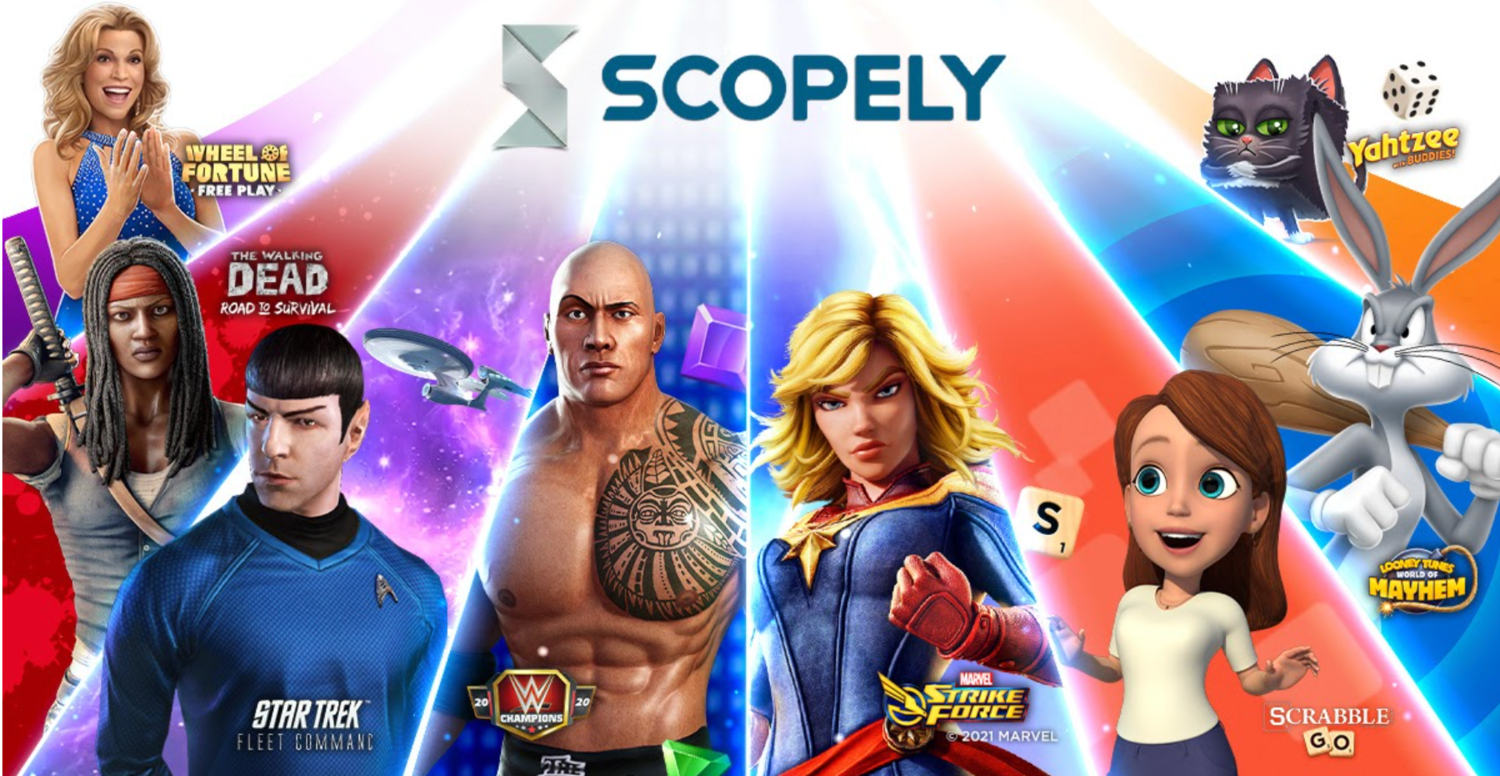
Let’s talk about M&A. When does M&A make the most sense for Scopely? And what’s your thought process when considering a potential deal?
In terms of M&A, we're focused on three fundamental qualities of whatever team or company we're looking at. And these aren’t either/or. Sometimes it's one, sometimes it's two, but the first question is can we make their business bigger and better? Can we help them realize their vision? The answer to that might be because we can help them with capital or talent or technology or culture or process.
The second question is can they make us better? As I said before, we have a learning-oriented culture. We think the faster that we're learning, the better we are. We're also looking for teams who have great businesses that can teach us things. As an example, both of those conditions were met when we acquired the FoxNext Games team. We helped that team successfully scale MARVEL Strike Force. Obviously, the team has done incredible work throughout the year, but I also think that Scopely has brought a lot of value in terms of scaling the audience and improving the marketing of that game. At the same time, the FoxNext organization has made Scopely better. They've taught us things that we didn’t know and they've had a profound impact on how we think about our ecosystem and how we think about the company. Both of those conditions were met in that acquisition, and it’s a really powerful lens for viewing M&A.
The third quality is ensuring that we’re focused on where the future is headed. As you know, the industry is moving very fast. Technology is advancing and content is quickly evolving, so we also want to use M&A to position ourselves strategically for the future. We want to bring in teams that are doing great work in areas where we think the industry is headed. Those are long-term bets that we make in areas where we think disruption is happening but also creating new, massive opportunities.
Given all the major brands that you work with, how does Scopely think about IP? Do you view Scopely as an IP-driven business? Or is that more of a byproduct of making the kind of games that you think can best succeed?
We're an LTV-driven business. From a business perspective, if you build really high LTV, then many things take care of themselves. Sometimes IP is really powerful and enables you to build really high LTV games. As an example, MARVEL Strike Force is an IP that's, in some ways, the perfect IP for an RPG. You have characters that people love, a deep roster that seems to never expire, it keeps growing, and Disney’s ongoing support of the Marvel Universe keeps feeding interest and content. That's an IP that naturally helps build good LTV. In those cases, we'll lean in and we're very excited to partner with IP holders.
In the case of Yahtzee, that's an IP that provides access to really powerful gameplay mechanics that are well-known, a lot of fun, and have been tested throughout decades of player interactions. It’s an example of where the brand and mechanics help attain high LTV.
We also have a number of teams working on building incredibly powerful and strong LTV curves based on original IP. So I think of IP as a tactic rather than a strategy. Our strategy is to build the best games with the biggest LTVs. Then choose your path to get there. Some teams will want to partner with specific IP holders, and other teams will chase the same goal by building their own, specific universes and gameplay mechanics.
In terms of the future, as you work to build "the definitive free-to-play games company," what's next? What potential opportunities are you excited about?
First, I'm really excited about our live services and our live games. We've seen significant growth from a number of our games through 2020 and Q1 of 2021. Some of the roadmaps that we have on games like Yahtzee with Buddies or Star Trek Fleet Command give me a lot of confidence that those are the kind of games and ecosystems that we can continue to grow for many years and, in some cases, grow exponentially. Some people always think about the future in terms of “the new,” while often the future is about the great things that you already have. We're very excited about our live games and where they're headed.
We also have a really exciting slate of products in development. As game makers, we're on a growth journey. Ambitions, in terms of the experiences that we want to deliver and the scope, are growing in scale, so I think we can do some big things in terms of our product launches over the next few years. Finally, as we said before, our M&A pipeline is also really interesting. We're speaking to great teams that could have a transformational impact on what we're trying to do as a company.
More generally, I've been doing mobile games for quite a few years and I’ve seen the industry, not just mobile games, but gaming generally, go through a lot of transitions. I think we're getting to a world where free-to-play gaming has, in my opinion, won the day, so that's exciting for us. We have incredible capabilities as it relates to free-to-play and mobile. We want to take those capabilities to more platforms and really think of ourselves as a player-centric company rather than as a platform-centric company. That's one trend that you'll see from us and the products that we'll be launching over the coming years. In some cases, the game may only be on mobile, but in many cases it's going to mean that it's going to be across multiple screens.
The other thing that's really exciting is there's a huge evolution of play and what a game is, as a cultural artifact, if you want to call it that. Whether it's user-generated content (‘UGC’), social networks, or virtual worlds, there's a whole sphere of what I would call "emerging games" or "emerging play." That's a really exciting area where we want to play a role. Also, I think it's fundamentally changing how players are involved in games. One of our ambitions is to empower players to, in some ways, make the games and direct the consumer experience; we call it directed-by-consumer. There are a lot of things happening in the UGC space and no-code gaming that are going to continue empowering players to be on that journey. That's part of our strategy and core of how we think about this space.
We're also focused on Asia, which is a huge business opportunity, both in terms of the players and revenues, but also in terms of the game development expertise and creativity. I'm blown away by the games being made in Japan, China, Korea, and other parts of Asia. We’re always interested in working with the best creative talent in the world.
Finally, we’re still very focused on technology. We’re improving our Playgami tech platform so that it can serve more screens, more types of games, more use cases, build competitive advantages, and provide more value to different game teams all over the world.
If we nail all those things over the next 12-24 months, I'd be really excited and we'd be well on our way to building a company that gets better every day.
On Leadership and Culture
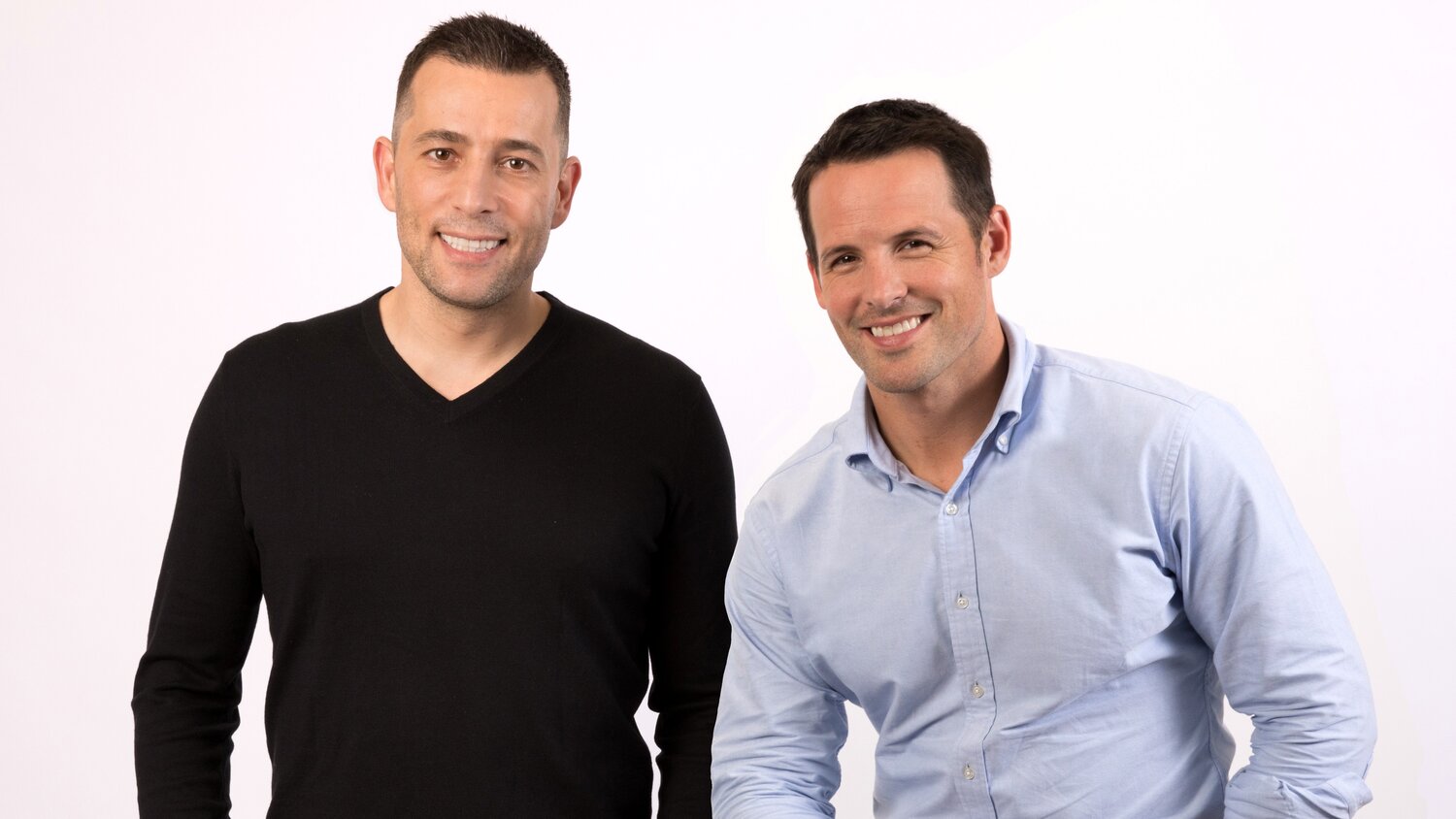
That sounds like a lot to nail, but I’m excited to watch your team nail it all. Shifting gears, let’s talk about you as a leader. First, how do you typically spend your time day-to-day?
Much of the answer to that question is contained in the things that we were talking about before. Ultimately, my goal is to understand the problems that teams are dealing with and try to find solutions to those problems. I continuously meet with different game teams to understand where they are on their journey, where they're winning, where they're not winning, and try to bring the power of the Scopely OS to help them battle that. That's one big area.
The second big area is thinking about how we can bring value to our game teams? I also spend a bunch of time working with our strategy team and with the Playgami team. We’re constantly asking, "What are the capabilities that we can bring to our organization that will empower us to do great things?”
The third thing is working to continuously improve Scopely’s OS: how do we evolve it, how do we tweak it, how do we increase our talent density, how do we build even greater teams, how do we evolve our culture and improve it, how do we take care of our bugs in our OS? How do we do all of this so that we're building an ecosystem where people can do the greatest work of their life? That’s incredibly important.
Finally, it's building the strategic roadmap of the company. Most people at Scopely work on what’s important today and what's going to happen in the next 12 months, but I also spend a lot of time trying to make sure that we have a strong vision and the roadmap to support that vision for the next 4-6 years.
Inside of a co-CEO relationship, how does decision-making function between you and the other co-CEO, Walter Driver?
In some ways, I wonder how companies can operate with a single CEO. For me, it's a big asset for the company. We're a low ego culture. What I mean by that is we're very ambitious and we're trying to get to great solutions and great insights, but we don't believe that you get there by imposing your point of view. We think that you get there by working with others to continuously iterate your point of view. In some ways, the faster you can kill your existing ideas with better ones, the better. Walter helps me to do that, and I help Walter do that.
Applying that mindset to how we work together, it builds a more powerful vision and a more powerful roadmap of what we can do. We do that collaboratively. We do that by spending a lot of time together, challenging each other, being respectful of each other's ideas, and then building together a shared vision of what we want to do across the company and across the Scopely ecosystem. He's focused on some areas of the business, and I'm focused on some others, but it's a shared vision that we're building together. It's through the process of questioning each other's ideas and collaboratively coming up with better ones that creates a super power which makes the company better, stronger, and more powerful.
Before wrapping up, let’s quickly narrow in on a key piece of Scopely’s operating system: your culture. How do you and Scopely think about culture building, especially as you've grown so much, made acquisitions, worked with lots of partners, and obviously care about empowering talent to make great games?
Culture needs to live in combination with other things. Our operating system is the combination of our people, our processes, and our culture. It is those three things that build a great company operating system that can deliver high quality decision making in a decentralized manner. You can have great culture, but if you don't have great people, that's not going to work. But you can have great people, and if you don't have a great culture and great processes to empower those people, that's not going to work either. So we're focused on those three components.
Culture is also about defining the principles that matter most to the company. It’s what you are willing to stand behind through the highs and the lows. Of course, culture, as anything, needs to be constantly evolving, and we're constantly evolving and refining ours. But having a set of principles that governs how a company of our scale needs to behave is really powerful. Culture is not about a set of statements that live on a wall or piece of paper. Culture is about ideas that drive behavior.
I think the first thing that you need to do is ensure that your people are aware of what those principles are. If you want a highly decentralized company, those are ideas that require repeated and explicit articulation. That helps employees not just see the principles but really understand them and see the value in them.
The second thing is that cultural principles need to be truly lived. Everyone needs to use them in how we behave, and, most importantly, the leaders need to embody the cultural values. Otherwise it's just not true. A culture that isn't true is poisonous and it's something that you certainly want to avoid at your company. Make sure that it's explicit, that it's well understood across the company, and that there's no ambiguity.
The final thing is a willingness to pay the price for culture, because it's about having the courage in your convictions as a company. Sometimes those convictions are very liberating and empowering, but sometimes they also require you to behave in ways that might not seem optimal at that time but are crucial to how you think of long-term value creation. I think that's an important part of culture. If all of those things are true, then it's a powerful system to drive and align strong behavior from the thousand plus people that are making countless decisions every day around the globe.
Final question. As you look back across your career, what are you most grateful for?
People — specifically the people who helped me get up when I was failing, who helped me get to places I would’ve never been able to get to on my own, who inspired me, and who also taught me things that I didn't want to learn. Sometimes those interactions aren't great at that moment, but years later you reflect back on those and they were also great learning experiences. I would say that what motivates me about work is doing great things with people, especially those who inspire me and help me grow. It's those relationships and those moments that have had the biggest impact on me and, for sure, are what I’m most grateful for in my professional journey.
This has been a great conversation, Javier. Thank you for taking the time.
If you enjoyed this conversation, make sure to subscribe to our newsletter so that you can receive all future interviews straight in your inbox.


